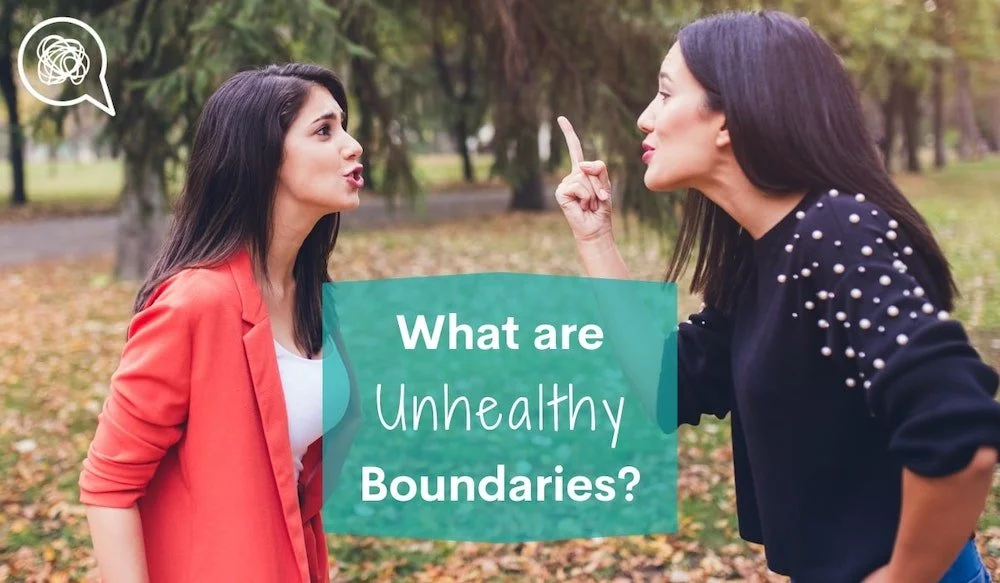What Are Unhealthy Boundaries?
Therapists often talk about the importance of boundaries in relationships (romantic and platonic). But do you know how unhealthy boundaries develop?
Let’s first define the word. A boundary is a limit we set to protect ourselves and overall well being in relationships. Ultimately, we establish these boundaries to ensure we feel safe. There are several types of boundaries but below are 6 main boundaries that most of us need in our lives.
Emotional/Mental
Time
Physical
Sexual
Intellectual
Financial/Material
People develop unhealthy boundaries in different ways. One way is by growing up in a family that did not have boundaries. For example, if you are a first or second generation immigrant, you may have experienced a complete lack of boundaries within your family system. This might have looked like parents needing to know where you are at all times or parents relying on you for emotional support.
Another way unhealthy boundaries develop is by maintaining harmful learned behaviors. This can look like not speaking up out of respect when someone says something hurtful to you or feeling forced to do something because you don’t have choice. We maintain these ways of living because we saw previous generations do the same. Think you may have unhealthy boundaries but aren’t sure?
What are signs of unhealthy boundaries?
You overshare about your life. You find yourself oversharing with people and then immediately regret it because either they feel uncomfortable or you do.
You feel like you don’t have a voice. You struggle to take up space in your relationships with loved ones.
You feel used by people. You feel frustrated by how much you show up for people and don’t feel that same level of care back.
You feel alone. It may be difficult to develop relationships because you are not sure what healthy boundaries look like in relationships.
You struggle with anxiety or depression. Unhealthy boundaries over time can lead to anxiety and depression if left unchecked.
If you relate to this post, don’t worry! We have helped so many clients set better boundaries and we can help you too!
Be sure to follow our boundaries series on Instagram!

